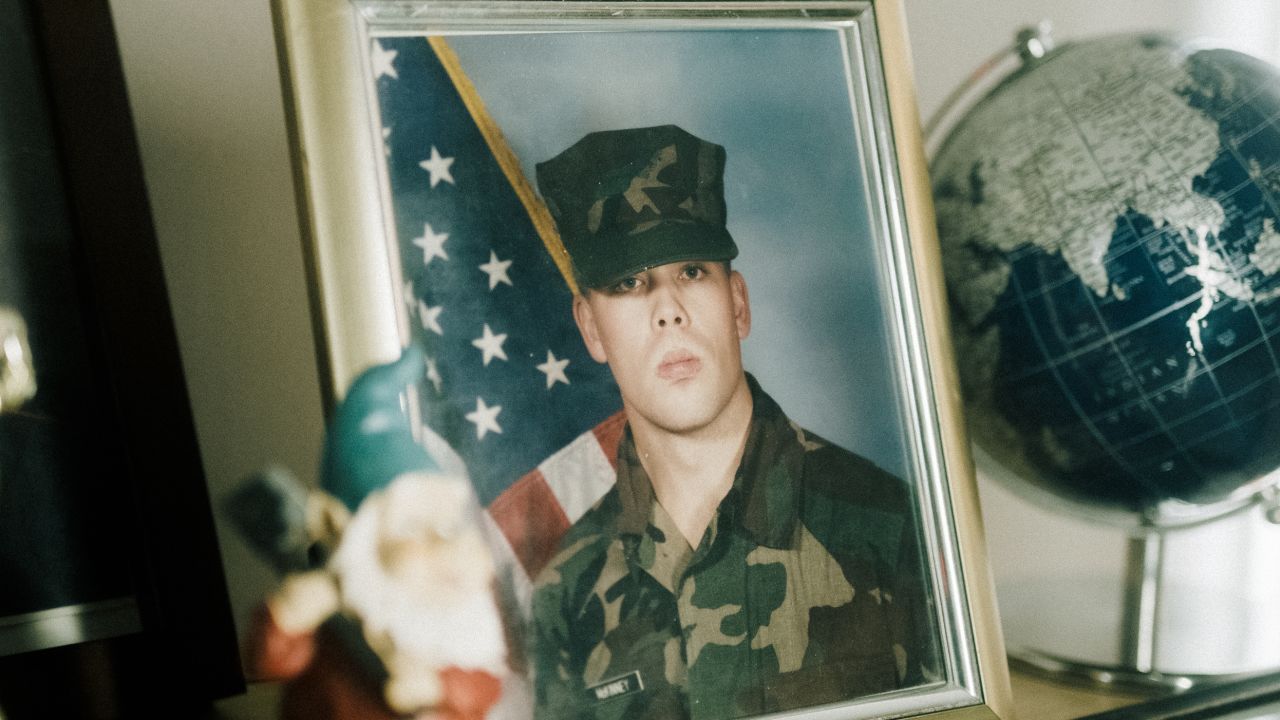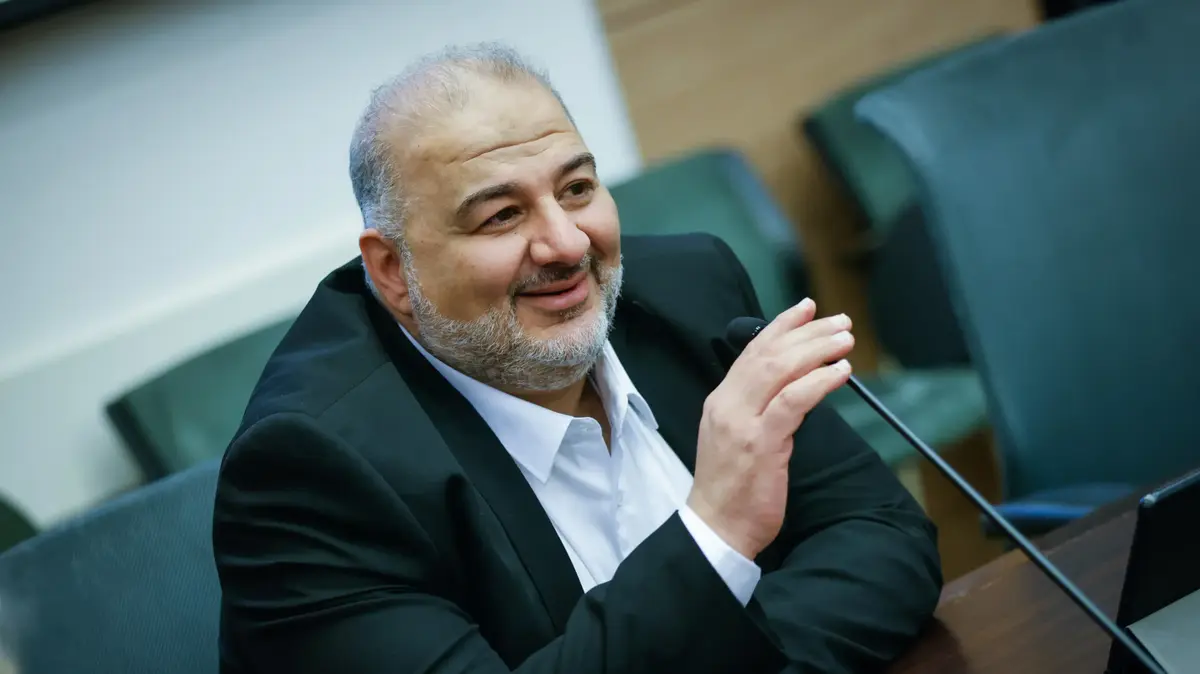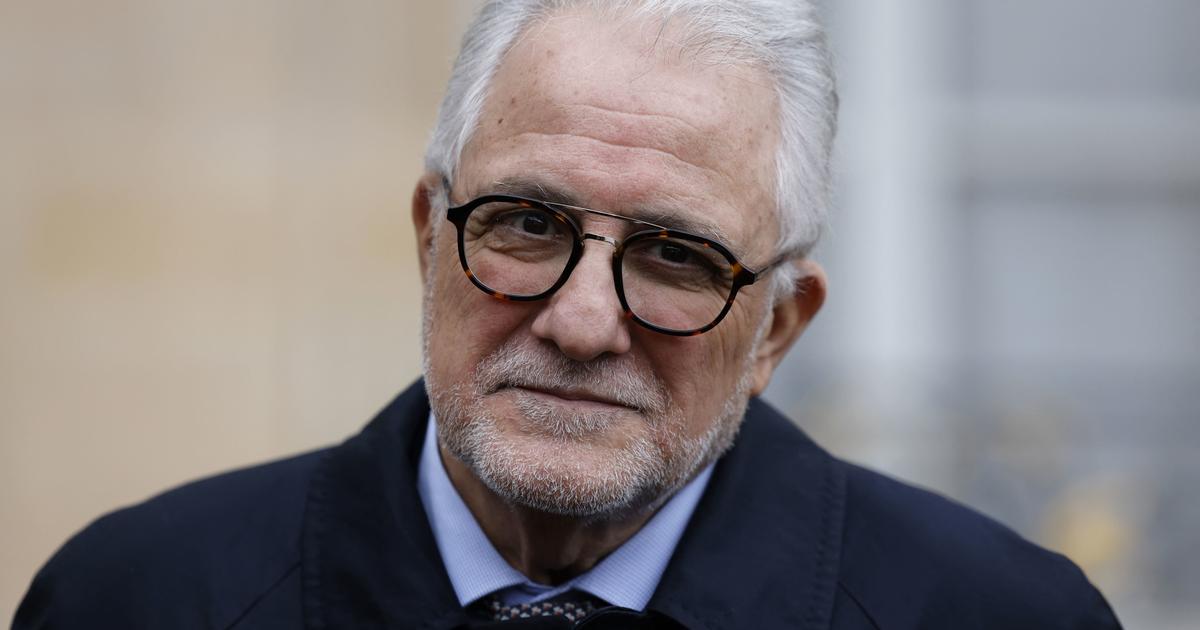Four Muslims killed in two shootings in Albuquerque 1:58
(CNN)
- As soon as some members of the Islamic Center of Muncie saw the man approaching, they knew there was a problem.
He was a big guy with broad shoulders, marching toward his mosque with his head down, his face flushed with what looked like anger.
It was Friday at the Islamic Center of Muncie, in the city of the same name, in Indiana, and the mosque was filling up for evening prayers.
His USMC (US Marine Corps) tattoos on his right forearm and a skull on his left hand made him stand out from the crowd.
His name was Richard “Mac” McKinney, and he wasn't there to pray but to destroy.
He was a former US Marine who had developed a hatred of Islam during his years of combat in Iraq and Afghanistan.
His fury deepened when he returned to his home in Muncie and saw how the Muslims had settled in what he considered his city, and even sent his children to the elementary school he attended. his daughter.
Unable to control his anger, he went to the Islamic center that day in 2009 to fulfill what he believed to be his last mission.
He was going to plant a bomb in the mosque with the aim of killing or injuring hundreds of Muslims.
He was on a scouting mission to choose where to hide his bomb and gather information that would validate his assumption that Islam was a murderous ideology.
“I told people that Islam was a cancer;
and I was the surgeon who would fix it,” he said.
advertising
But when McKinney entered the mosque, he was met with a form of resistance he hadn't anticipated.
Something happened that day that would change him in ways he had never imagined.
The people he intended to kill would end up saving his life.
A photograph of Richard McKinney as members of the Navy
McKinney and the members of the mosque built "an impossible bridge" between each other
What happened to McKinney at the mosque sounds like something out of a movie.
And indeed it is.
McKinney's transformation is the subject of a short but riveting documentary called "Stranger at the Gate."
The film, which won a special jury prize at the 2022 Tribeca Film Festival, tells how McKinney abandoned his plan and ended up converting to Islam and even taking a role in the mosque.
McKinney recently spoke to CNN via video about his unlikely conversion.
Wearing a blue T-shirt with the phrase "Say No Hate to Hate" on his muscular body and a long white beard that made him look like Santa Claus, McKinney told his story in such a direct and simple way that it revealed the 25 years of him in the military.
McKinney thought his Friday afternoon visit might end in his death.
"At the end of the night, I thought they would have me in the basement with a sword to my throat," he said.
Instead, several members of the mosque stepped forward and disarmed McKinney with some shrewd decisions that saved their lives.
The film cites an amazing act of kindness: Mohammad S. Bahrami, a native of Afghanistan and co-founder of the center, ended up hugging McKinney and bursting into tears.
"To this day, it still doesn't make sense to me," McKinney explained of that gesture.
Joshua Seftel, the film's director, recounted that he was drawn to McKinney's story in part because of his own experiences with anti-Semitism growing up in Schenectady, New York, in the late 1970s and early 1980s. His classmates hurled anti-Semitic slurs at him while throwing coins at him.
Seftel made his film as part of "The Secret Life of Muslims," a series of videos found online.
He says the McKinney story gave him hope that even some of the deepest divisions in America can be overcome.
Richard McKinney: "I thought America was mine. I had bled for this. It was kind of, 'You don't belong here.'"
“They were able to build an impossible bridge to each other,” Seftel says of McKinney and the members of the Muncie Islamic Center.
“If that happened, anything is possible.
They gave us a model of how we can all do it.”
McKinney sought to forgive himself for what he did in the war
Revealing too many details about how McKinney converted to Islam would detract from the film's impact.
But there are some scenes and characters that ask to be told.
One is the story of how combat changed McKinney.
McKinney's struggles after his return to Muncie in 2006 are a prime example of the adage, "In war, no soldier goes unscathed."
McKinney was trained to see the Iraqi and Taliban soldiers he fought not as human beings but as paper targets on a shooting range.
He also recounted that he tried to find a new community after leaving what he calls the "band of brothers" he fought alongside during his years in the Navy.
But once he returned home, he turned to alcohol and women to numb his war experiences.
Seeing Muslims only made her pain resurface.
He resented the presence of Muslims in Muncie because he seemed to mock the sacrifice he and his comrades had made in Iraq and Afghanistan.
"I wasn't willing to share," he says.
“I saw the US as mine.
I bled for her.
She was kind of like, 'You don't belong here.'"
Also part of his grief was the guilt he felt for the people he had killed during the fight.
He was not only at war with the Muslims;
he was at war with himself.
"He can't completely forgive himself for what he did," says Dana, one of his ex-wives, in the film.
McKinney then met the 'Mother Teresa' of Muncie's Muslim community.
There were many people who helped allay McKinney's anger and guilt.
One was Jomo Williams, an African-American member of the Islamic center who knew something about anger.
His great-great-grandfather was lynched and castrated by a mob of white men.
His hatred of them continued until he converted to Islam.
Williams was one of the first to see McKinney walking toward the mosque, looking shaken and angry.
Richard McKinney praying
"When I saw him, he was walking a little fast, his head was a little down, and his face was a little red," Williams recounts in the film.
"I knew something was wrong."
As viewers can see in the film, Williams was the one who asked McKinney a question that set him on the path to conversion.
But if there's a heroine in "Stranger at the Gate," it's a magnetic woman everyone calls "Sister Bibi."
Bibi Bahrami is a co-founder of the Islamic Center of Muncie and was instrumental in converting McKinney.
Bahrami and her husband, Mohammad, are pillars of the community.
They have six children, several of whom graduated from Ivy League schools and pursued a variety of careers.
She is a whirlwind;
she volunteers at a local women's shelter, the YWCA, the Rotary Club of Muncie, and the Interfaith Fellowship.
She all while serving on local boards and organizing fundraisers for city politicians.
She embodies the Qur'anic verse on the Islamic center's website: "The reward for kindness is nothing but kindness."
Bibi also knew about the damage caused by war.
Her family in Afghanistan was displaced after the invasion of the Soviet Union in 1979. She fled her country in tears and lived in a refugee camp in Pakistan for six years before marrying and making her way to the United States.
Seftel calls her the "Mother Teresa of the Muslim community" in Muncie.
She is someone who welcomes strangers in need to clean and iron their clothes and feed them.
Her reputation is such that refugees from other countries somehow find her number and address to locate her for help.
She says that her awakening occurred when she arrived in the US and became a citizen.
"Freedom of choice is the most important thing to me," he says of what he likes about America.
“I can practice my religion, continue to cover myself (wearing her hijab) and get an education.
I was inspired by these opportunities.
I really love this country."
His service is also part of his worldview.
Showing kindness to a stranger is fundamental to the Muslim faith.
“God created us all to know and care for each other, not to despise each other,” he says.
Bibi Bahrami, one of the co-founders of the Islamic Center of Muncie
She approached McKinney with a bold invitation
Bahrami's hospitality is remarkable considering many Muslim Americans are still treated like strangers in their own country.
Hate crimes against Muslims in the US increased 500% between 2000 and 2009, according to a Brown University study, reflecting a surge in anti-Muslim sentiment following the 9/11 attacks.
Many still face hostility, are watched and questioned about their patriotism.
Some members of the Muncie Islamic Center stopped coming to the mosque because they were afraid of the burly Marine with the tattoos.
But Bahrami widened her circle of sympathy to include McKinney.
She invited him over to her house and cooked a hearty Afghan dinner of chicken, rice, an eggplant dish, and a green yogurt dip flavored with cilantro and lime juice.
McKinney devoured the food.
"He tried everything," she says, laughing.
"He wasn't picky."
Food became another bridge to McKinney.
She continued to visit Bahrami and others at the center.
He read the Koran, the holy book of Islam.
He formed friendships.
He told the members of the mosque about his time in combat and they accepted him.
Eight months after McKinney's initial visit to the mosque, he converted to Islam.
After the ceremony, he was greeted with what he called "a mosh pit of hugs" from the people he once tried to harm.
Eventually, he even served two years as president of the Islamic Center in Muncie.
When asked how he felt being showered with hugs after his conversion ceremony, McKinney broke into a wide, boyish grin:
"I was fine with that."
McKinney now has a new mission
When asked why he converted he becomes more talkative.
He says that the more time he spent with the members of the mosque, the more he discovered how much he had in common with them.
Once, when he was a child, he had thought of becoming a preacher, and later discovered that Islam shares some similarities with Christianity.
Islam, Christianity, and Judaism, for example, are connected in many ways.
Each is a monotheistic religion that has its origins in Abraham.
Many Muslims, for example, consider Jesus a great prophet born to a virgin mother.
Richard McKinney sharing his experience
But it was the kindness of the people at the center, along with the community they shared with him, that was most decisive in his conversion, he says.
“They were just happy.
They were just nice,” she says.
"And I really needed that in my life."
He says that if the people at the center had reacted with hostility that first day, the result would probably have been bloodshed.
Would it be fair to say that their kindness saved his life?
"No, no," he says.
"It's too little to say just that."
McKinney claims that he likely would have attacked the mosque and eventually received the death penalty if not for the way he was treated.
Today, McKinney is trying to repay the kindness he received.
She earned a bachelor's degree in social work with a concentration in peace and conflict resolution and now travels the country to speak about her experiences.
Have you been able to forgive yourself now that you have converted?
He pauses before answering.
"It's a work in progress," he says in his deep baritone tone.
"What do you think about that?"
However, as a beautiful scene from the film illustrates, others have forgiven him.
It shows McKinney standing next to Williams, the African-American man who lost his great-great-grandfather to a hate crime, silently raising palms together in prayer as the sun streams into the mosque.
That image conveys more than words could say.
McKinney is no longer the stranger at the door.
He has found a new group of brothers and sisters, not in the heat of battle, but in faith.
Islam








